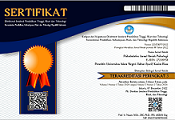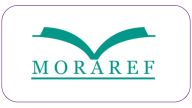Wellbeing of Students in Islamic Boarding School: The Role of School Climate and Islamic Personality
Abstract
Belajar di Pondok Pesantren merupakan tantangan yang besar bagi siswa yang memasuki usia remaja. Remaja pada umumnya bebas menjalankan kehidupan di luar namun tidak demikian dengan remaja yang menjadi siswa (santri) di pondok pesantren. Penelitian ini bertujuan untuk melihat peran iklim sekolah dan integrative Islamic personality dengan wellbeing pada siswa di pondok pesantren. Subjek penelitian berjumlah 132 orang santri di pondok pesantren X di Pekanbaru dengan teknik non probability sampling. Alat ukur yang digunakan yaitu skala school climate dan skala Islamic integrative personality dari Tekke dan Ismail, dan alat ukur PERMA dari Seligman yang dikembangkan oleh Kern, et al dengan mengganti aspek meaning dan menambah dua faktor illbeing yaitu depresi dan kecemasan untuk mengukur Wellbeing pada santri. Hasil analisis menunjukkan school climate dan integrative personality berpengaruh positif terhadap kesejahteraan siswa di pondok pesantren dengan F sebesar 21,779 dengan sumbangan 25,2% dengan taraf signifikansi 0,00. Kesejahteraan siswa di pondok pesantren dapat diwujudkan melalui iklim sekolah yang positif dan kepribadian islam yang integratif melalui keberadaan mereka di pondok pesantren.
Keywords
Full Text:
PDFReferences
Abla, C., & Fraumeni, B. R. (2019). Student engagement: Evidence-based strategies to boost academic and socialemotional results. McREL International.
Al-Banna, Hasan 1992. Majmu’ah Rasail. Daru At Taujii’ Wa An Nasyr Al islamiyah, Kairo
Alshammari, A.S, Piko, B.F, Fitzpatrick, K.M (2022) A sex-stratified multiple regression on Jordanian adolescents’ life satisfaction using different elements of school climate. https://doi.org/10.1016/j.heliyon.2021.e08693 Received 9 August 2021; Received in revised form 6 October 2021; Accepted 27 December 2021 2405-8440/© 2021 The Author(s). Published by Elsevier Ltd. This is an open access article under the CC BY-NC-ND license (http://creativecommons.org/licenses/bync-nd/4.0/). journal homepage: www.cell.com/heliyon
Bekken, F., Beld, M., Roest, J., van der Helm, P., de Swart, P., (2015). Manual SCI: School Climate Inventory. Leiden, Windesheim. Available at: https://www.hsleiden.nl/bin aries/content/assets/hsl/lectoraten/residentiele-jeugdzorg/vragenlijst/manual _sci_english.pdf. (Accessed 20 November 2020)
Benarous X, Guedj MJ, Braitman A, Gallois E, Lana P. Lien (2014) entre comportements agressifs et vécu dépressif chez l'adolescent. Une étude transversale menée au centre psychiatrique d'orientation et d'accueil de l'hôpital Sainte-Anne [The link between aggressive behavior and depression in adolescence. A cross-sectional study conducted in the psychiatric emergency unit at the Sainte-Anne hospital]. Encephale. Dec;40(6):439-46. French. doi: 10.1016/j.encep.2014.06.003. Epub 2014 Aug 13. PMID: 25127898.
Cahyaningtyas, K. D., & Muis, T. (2017). Peta masalah santri dan kesiapan guru BK SMA di Pondok Pesantren Al Fattah Sidoarjo. Jurnal BK UNESA, 7(3), 52–60. ttps://jurnalmahasiswa.unesa.ac.id/index.php/jurnal-bk-unesa/article/view/19795/18108
Fraillon, J. (2004). Measuring Student Well-Being in the Context of Australian Schooling: Discussion Paper. Commissioned by the South Australian Department of Education and Children’s Services as an agent of the Ministerial Council on Education, Employment, Training and Youth Affairs (MCEETYA). Diunduh tanggal 9 September 2018.
Ismail, N.A.H., Tekke, Mustafa (2015) Development and Initial Validation of Integrated Islamic Personality. Adv. Environ. Biol., 9(18),163-171, https://www.researchgate.net/publication/283044273
Kastolani (2016) internalisasi nilai-nilai tauhid dalam kesehatan mental. Inject: Interdisciplinary Journal of Communication Volume 1, No.1, Juni 2016: h. 1¬24
Karen Van Petegem, Antonia Aelterman, Hilde Van Keer, Yves Rosseel, (2007). The influence of student characteristics and interpersonal teacher behaviour in the classroom on student’s wellbeing. Social Indicators Research January 2008, Volume 85, Issue 2, pp 279–291. https://link.springer.com/article/10.1007/s11205-007-9093-7
Kern, M.I., Water, Lea.F., Adler, A., White, M.A/ (2015). A multidimensional approach to measuring well-being in students: Application of the PERMA framework. The Journal of Positive Psychology, 2015 Vol. 10, No. 3, 262–271, http://dx.doi.org/10.1080/17439760.2014.936962
Khatimah, H. (2015). Gambaran School Well-Being pada Peserta Didik Program Kelas Akselerasi di SMA Negeri 8 Yogyakarta. PSIKOPEDAGOGIA ©2015 Universitas Ahmad Dahlan 2015. Vol. 4, No.1 ISSN: 2301-6167.
Konu, A & Rimpela M. (2002). Well-being in School: Conceptual Model. Health Promotion International, 17(1), 79-87.
Lester L, Cross D. (2015) The Relationship Between School Climate and Mental and Emotional Wellbeing Over the Transition from Primary to Secondary School. Psychol Well Being. 2015;5(1):9. doi: 10.1186/s13612-015-0037-8. Epub 2015 Oct 22. PMID: 26516619; PMCID: PMC4615665.
Mudzkiyyah,L., Wahib, A.,Bulut, S. (2022). Well-being among boarding school students: Academic self-efficacy and peer attachment as predictors. Psikohumaniora: Jurnal Penelitian Psikologi Vol 7, No 1 (2022): 27–38. DOI: 10.21580/pjpp.v7i1.10374 https://journal.walisongo.ac.id/index.php/Psikohumaniora. ISSN 2527-7456 (online); 2502-9363 (printed)
Mustofa, A, (2021). Towards quality islamic education: Madrasa Teachers’ Views on School Climate in East Java. MIQOT: Jurnal Ilmu Ilmu keislaman. DOI: 10.30821/miqot.v45i2.856. P-ISSN 0852-0720. E-ISSN 2502-3616
National School Climate Center (NSCC), (2019). School Climate. Available at: http://www .schoolclimate.org/climate/. (Accessed 17 Nov 2022).
Rofingatul Mubasyiroh, Indri Yunita Surya Putri, dan Dwi Hapsari Tjandrarini. (2015). Determinan Gejala Mental Emosional Pelajar SMP-SMA di Indonesia Tahun 2015. Buletin Penelitian Kesehatan (Bulletin of Health Research, p-ISSN: 0125-9695. e-ISSN: 2338-3453) Vol 45, No 2 (2017)DOI 10.22435/bpk.v45i2.5820.103-112
Saifurrahman (2016). Pembentukan kepribadian muslim dengan tarbiyah Islamiyah. RAUDHAH Proud To Be Professionals JurnalTarbiyahIslamiyah Volume 1 Nomor 1 Edisi Juni 2016 P - ISSN : 2541 - 3686
Seligman, M. (2018) PERMA and the building blocks of well-being. The Journal of Positive Psychology, https://doi.org/10.1080/17439760.2018.1437466. © 2018 Informa UK Limited, trading as Taylor & Francis Group
Smith A, Ntoumanis N, Duda J. (2007) Goal striving, goal attainment, and well-being: adapting and testing the self-concordance model in sport. J Sport Exerc Psychol. Dec;29(6):763-82. doi: 10.1123/jsep.29.6.763. PMID: 18089903.
Steinmayr R, Heyder A, Naumburg C, Michels J and Wirthwein L (2018) School-Related and Individual Predictors of Subjective Well-Being and Academic Achievement. Front. Psychol. 9:2631. doi: 10.3389/fpsyg.2018.02631
Tekke, Mustafa., Ismail, N.A.H (2016) Development of Integrative Islamic Personality Model. Journal of the Human and Social Sciences Researches. [itobiad-e-issn: 2147-1185] Volume: 5, Issue: 5
Womick, J., & King, L. A. (2020). Personality and well-being. In B. J. Carducci (Editor-in-Chief) & C. Nave (Vol. Ed.), The Wiley-Blackwell encyclopedia of personality and individual differences: Vol. IV. Clinical, applied, and cross-cultural research. (pp. 371-376). Hoboken, NJ: John Wiley & Sons.
DOI: http://dx.doi.org/10.24014/pib.v6i3.29027
Refbacks
- There are currently no refbacks.
Redaksi Psikobuletin: Buletin Ilmiah Psikologi
Publisher: Universitas Islam Negeri Sultan Syarif Kasim Riau
Jl. H.R. Soebrantas Km. 15.5 No. 155 Gedung Fakultas Psikologi UIN Sultan Syarif Kasim Riau Kel. Tuahmadani Kec. Tampan Pekanbaru - Riau 28293.
E-mail : psikobuletin@uin-suska.ac.id / Website :http://ejournal.uin-suska.ac.id/index.php/Psikobuletin
Psikobuletin : Buletin Ilmiah Psikologi by Fakultas Psikologi is licensed under a Creative Commons Attribution 4.0 International License.



31.png)





